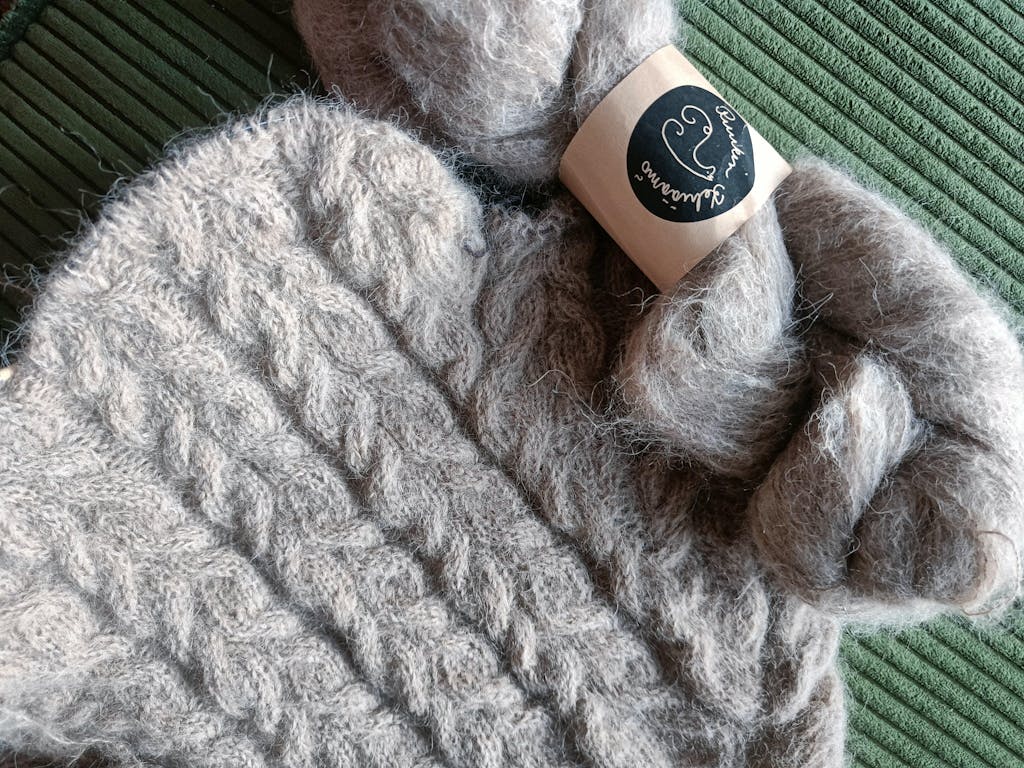Merino Sweater vs. Alpaca Sweater: Which is the Better Choice?
We are often asked: “Isn’t it a bit like a merino wool shirt?”
An alpaca sweater is, of course, a sweater just like a merino sweater, but even small technical differences in the materials affect the final product.
Merino wool is the most well-known option for most people, and merino wool sweaters are even sold in supermarkets. Sweaters made from alpaca wool are not as well-known, for the simple reason that high-quality alpaca wool is only available in limited quantities.
Both materials provide warmth and comfort. But there are also differences between the materials.
1. Weight and Heat
- Merino wool : Merino wool is known for its lightness and warmth. It is made of fine fibers and thanks to the chemical treatment (Superwash / Ecowash) it is pleasantly soft and easy to wash in the washing machine. This makes it a popular choice for layering.
- Alpaca wool : Alpaca wool is lighter than merino wool, has a higher thermal value than merino wool, and does not require any chemical treatment to feel soft against the skin. This makes alpaca knitwear an ecological and particularly suitable option for cold conditions, without feeling heavy on the skin.
2. Softness and Comfort
- Merino sweater : Chemically superwashed merino wool is soft and breathable, and regulates body temperature well.
- Alpaca Sweater : High-quality alpaca wool is known for its special softness, which is due to its smooth fiber structure. Alpaca wool does not need chemical treatment to feel as soft as merino wool and feels downright luxurious against the skin. Alpaca wool is antibacterial and hypoallergenic, and does not contain lanolin, which can cause skin irritation.
3. Durability and Maintenance
- Merino wool : Merino wool is a durable material, but it can require special care to maintain its shape and softness. It can stretch and lose its shape over time if not cared for properly.
- Alpaca wool : Alpaca wool is very durable and has a natural ability to bounce back to its shape, making alpaca knitwear a long-lasting and easy-care option.
4. Temperature Regulation
- Merino wool: Merino wool is known for its excellent ability to regulate body temperature. It keeps you warm in cold weather and cool in warmer conditions. This is due to the air trapped between the fibers.
- Alpaca wool: However, the temperature regulating properties of alpaca wool are many times greater than those of merino wool. This is due to the structure of the alpaca fiber. Alpaca wool is also unparalleled in its breathability. These properties make it a great choice for all kinds of situations and weather conditions.
5. Ethics and Environmental friendliness
- Merino wool: Merino wool is often produced using industrial methods that may have an impact on the environment. Merino wool production can be associated with animal welfare issues and environmental overload.
- Alpaca wool: Alpaca wool production is environmentally friendly and sustainable. Alpacas are not intensively grazed, they are gentle grazers whose soft hooves do not damage the soil like ungulates. Alpaca farming supports biodiversity. In addition, on farms producing alpaca wool, which are often very small, with 30-50 alpacas, the welfare of the alpacas is a priority (RAS - Responsible Alpaca Standard).
Conclusion
Both merino wool and alpaca knitwear offer their own unique benefits. Chemically treated merino wool is light, soft and good at regulating temperature, but alpaca wool offers softness, lightness and durability without additives. It is unrivaled in breathability. If you are looking for a knitwear that is especially comfortable, durable and environmentally friendly, alpaca knitwear is a great choice. High-quality alpaca wool offers benefits that make it an attractive option for those who value luxury and durability as well as environmental values.































